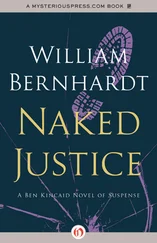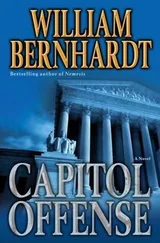“Overruled,” he repeated emphatically. “Sit down.”
The witness answered. “Initially, I saw Ms. Dalcanton because she was suffering from a variety of anxiety-related difficulties. What you might call nervous problems, but in reality they represent a far more complex and interrelated series of psychological disturbances.”
“How did she come to be your patient?”
“She was referred to me by a doctor at Social Services. She was picked up on a minor criminal offense—shoplifting, I believe—”
“Objection,” Christina said again. “Evidence of prior bad acts is inadmissible.”
“Inadmissible to prove a likelihood to act in conformity at a later time,” LaBelle quickly replied. “Here, it’s just being mentioned to establish a basis for the expert witness’s expert conclusions.”
Judge Cable nodded. “I’ll allow it for this limited purpose.”
Ben frowned. As if the purported purpose mattered. If the jury heard it, they heard it.
Dr. Fulbright continued. “The doctors at Social Services perceived Keri as suffering from psychological distress. She was unable to pay for professional help, so they sent her to me.” She paused, then added by way of explanation, “I try to do a certain amount of pro bono work each year.”
“I see. How much time did you spend with Ms. Dalcanton?”
“I met with her regularly—at least once a week—for approximately five months.” Her voice was calm and assured. “She was suffering from some serious problems, in my opinion.”
“Objection,” Christina said strenuously. Perhaps if she tried a different basis she would have more luck. “No foundation has been laid for that opinion.”
LaBelle gave her a patronizing look. “We will do so shortly, your honor. Unlike law school, in real life, not everything can happen in perfect order.”
Christina shot daggers at him with her eyes. “Law school or real world, you still have to follow the rules. Foundation first, conclusion second.”
Judge Cable held up his hands. “I’m sure Mr. LaBelle will go into the basis for the expert’s opinion in detail. I’m going to give him some leeway. Overruled.”
LaBelle nodded. “Dr. Fulbright, during this period when you treated Ms. Dalcanton, did you keep any notes?”
“Of course.”
“Do you have them with you today?”
She reached down toward her feet and retrieved a dark brown folder. “I do.”
“Fine. Feel free to refer to them. Could you please explain to the jury exactly what Ms. Dalcanton’s problems were? Or perhaps I should say—are.”
“Objection!” Christina said, rising to her feet. “I must say again—this violates the doctor-patient privilege. She’s not only revealing secrets but making recourse to confidential files.”
“The privilege is ended,” LaBelle replied.
“The privilege,” Christina shot back, “can only be waived by the patient—Keri Dalcanton.”
“Not so,” LaBelle rejoined. He was obviously ready for this. “According to both the canons of the AMA and the case law of this court, the privilege can be dissolved whenever there is serious threat of bodily harm to a patient or third party, or where the patient has engaged in a criminal act. In this case, both exceptions apply.”
Christina started to speak, but Judge Cable stopped her with a wave of his hand. “Don’t waste your breath, counsel. I’m going to allow it. Please continue.”
LaBelle thanked the judge, then turned back to the witness. “Again, please tell the jury what Ms. Dalcanton’s problems were during the time you saw her.”
“Objection!” Christina said. The jury was probably getting tired of her interruptions, but this testimony was too damaging to allow without a fight. “Lack of foundation. Lack of specificity. More prejudicial than probative.”
“Three very different objections,” Judge Cable said, nodding. “And all of them overruled. Proceed, Mr. LaBelle.”
Dr. Fulbright nodded. “Initially, she was suffering from a variety of anxiety-related problems. As you may know, she was living in Stroud when the Level Five tornado hit a little more than a year ago. Her place of work was destroyed; many of her friends lost their homes and a few lost their lives. Close in time and proximity, she lost her parents, in a sudden and traumatic traffic accident. The psychological scars left by these incidents were profound. She suffered symptoms of anxiety, paranoia, and severe neurosis.”
Fulbright glanced down at her notes before continuing. “Shortly after the tornado eliminated her place of employment, she moved to Tulsa, a much larger city than she had ever lived in before. From a psychological standpoint, this was a major error in judgment; it simply added additional stress to a psyche already crippled and dysfunctional. She had far more trouble finding work here, ironically, than she would’ve had in Stroud. After a series of stressful failures and an arrest for shoplifting, she ended up working as a stripper, and if I’m not mistaken, worked as a prostitute on the side for additional income.”
“That’s not true!” Keri said. Her voice rippled through the courtroom. Her eyes were wide with horror and outrage. “It’s a lie!”
Judge Cable pounded his gavel. “Mr. Kincaid, control your client!”
“I will, your honor.” He leaned close to Keri. “Quiet now. We’ll get our chance.”
LaBelle continued. “What was the effect of this … difficult lifestyle on Ms. Dalcanton, Doctor? In your expert opinion.”
Fulbright straightened slightly. “Clearly, the stress of living in a shameful way, of taking her clothes off and exposing herself, several times a night, over and over again, combined with the previous bereavement and trauma, took a psychological toll on her. This was intensified by her younger brother, who lived with her, was quite religious, and did not approve of her new occupation. His repeated comments only intensified the guilt and shame she was already experiencing.”
“To what effect, doctor?”
She paused before answering. “To the effect that Keri Dalcanton was a seriously disturbed human being. Unstable. And deeply psychotic.”
“Objection!” Christina said, letting her anger show. She wondered if her objections were doing more harm than good, flagging all the important parts for the jury and making them unforgettable. Still, she had to try. “Speculation. Lack of foundation.”
“This is an expert witness, not a fact witness,” Judge Cable answered. “She’s allowed to give us her expert opinion, even if it is speculative. Overruled.”
LaBelle continued. “Doctor, could this condition potentially be … dangerous?”
“Definitely. And particularly so in the case of Keri Dalcanton.”
“Why?”
“Because Ms. Dalcanton has an extreme penchant for violence. One of the worst I’ve ever seen.”
The buzz in the courtroom was audible. And to Ben, most disturbing.
“Isn’t a taste for violence inconsistent with the rather fragile psyche you’ve described, Doctor?”
“Not in the least. It is precisely people like Keri Dalcanton, people with damaged or fragile egos, who end up committing most acts of sudden, irrational violence. The least provocation could’ve caused her to commit acts of depravity and extreme cruelty.”
LaBelle walked to the easel and uncovered the enlarged photo of Joe McNaughton’s mutilated body chained to the fountain. “Even this?” he asked.
Christina jumped to her feet. “Objection! This is not a fact witness, remember?”
“Sustained,” Judge Cable said, nodding. But the point had been made.
Ben watched LaBelle carefully as he glanced down at his notes, trying to decide where to go next. LaBelle was walking a narrow tightrope, and they both knew it. If he made Keri appear to be crazy, Ben might go for a verdict of not guilty by reason of insanity. On the other hand, if he didn’t make her seem seriously off-kilter, how could he possibly explain the enormous violence done to Joe McNaughton—even after his death? After all, Joe was not the first man who ever dumped his girlfriend. But he was the first one who ever got chained to the fountain in Bartlett Square.
Читать дальше








